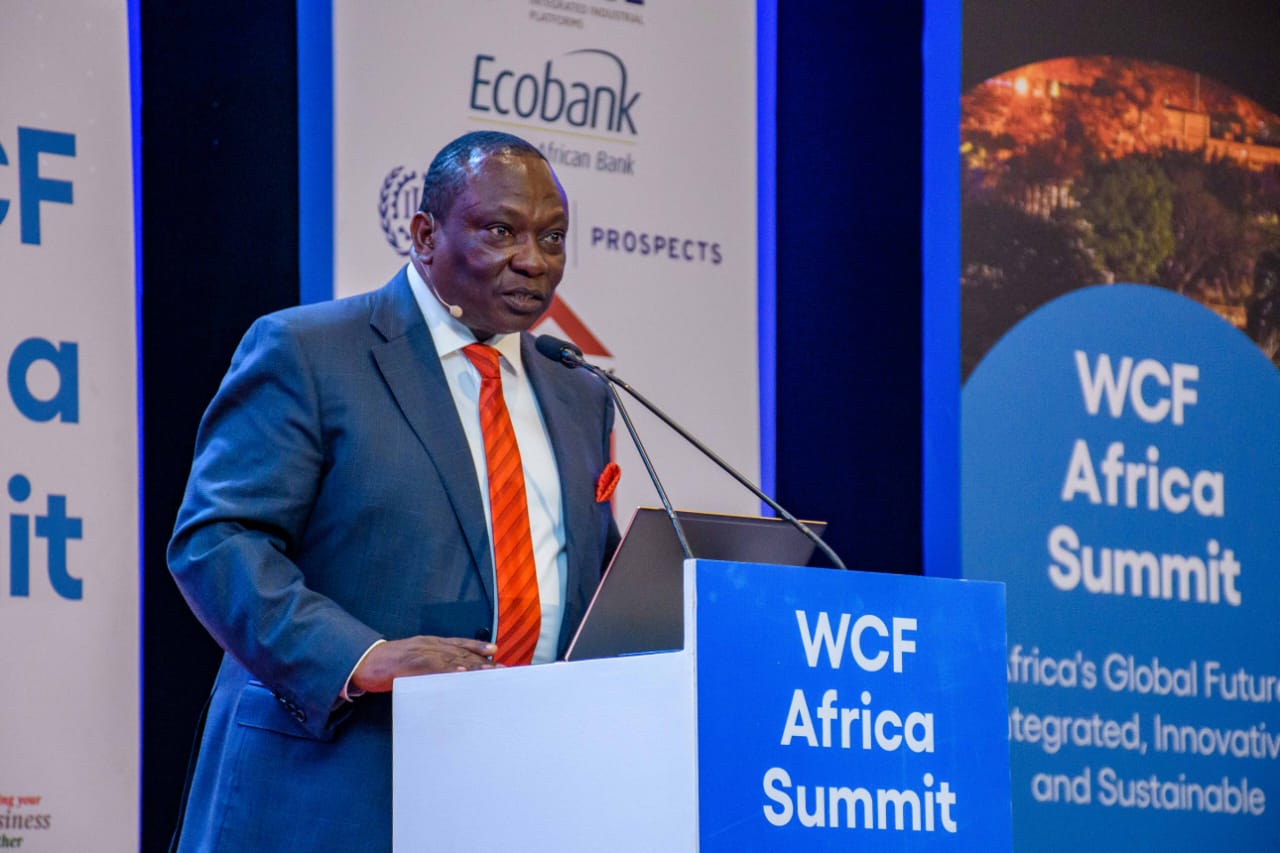 East African Chamber of Commerce, Industry and Agriculture (EACCIA) President Richard Ngatia speaks during World Chambers Federation Africa summit held in Nairobi.
East African Chamber of Commerce, Industry and Agriculture (EACCIA) President Richard Ngatia speaks during World Chambers Federation Africa summit held in Nairobi.
Calls for urgent action to bridge Africa’s financial divide were the highlight of the three-day World Chambers Federation Africa summit held in Nairobi.
The WCF summit themed ‘Africa's Global Future: Integrated, Innovative, and Sustainable’ was officially opened on Wednesday by President William Ruto.
It aims to unlock the continent's potential through trade, investment and sustainable development.
Speaking during a high-level panel discussion, East African Chamber of Commerce, Industry and Agriculture (EACCIA) President Richard Ngatia stated that inclusive growth cannot be achieved unless all segments of society are financially empowered.
He emphasised that while financial inclusion has improved, significant gaps remain.
“Despite progress, nearly 40 per cent of Africans are still unbanked, and 90 per cent of transactions happen in cash,” he said.
Ngatia noted that mobile money has transformed access, with about one-third of Africans using mobile financial services.
He, however, warned that only one in 10 adults have access to formal credit, and African small businesses face a staggering $330 billion (Sh42 billion) financing gap.
“This is not just a social issue...it is an economic roadblock. Limited access to finance is holding back business growth, job creation and our ability to fully leverage opportunities like the African Continental Free Trade Area (AfCFTA),” he said.
Ngatia, who also serves as a General Council Member of the WCF, further called for a multi-sector approach, combining innovation, supportive policy and strong partnerships.
“Digital finance is becoming a cornerstone of financial inclusion, but even the best innovations need the right environment to scale,” he said.
“Good policies can enable banks and fintechs to better serve underserved groups," Ngatia observed.
He called for harmonised financial frameworks across the continent, aligning with AfCFTA’s vision and ensuring its benefits reach everyone.
He noted that effective regulations, guided by smart data, create the environment for inclusive finance to thrive.
On partnerships, Ngatia was clear that no institution can singlehandedly close the gap.
“We need collaboration between governments, financial institutions, fintechs, investors and development partners. Cross-border partnerships can channel vital investment and expertise into Africa’s markets.
“An Africa that is truly integrated, innovative and sustainable must also be financially inclusive. Inclusive growth means ensuring opportunity reaches every entrepreneur, every woman and young person and every community.”
Panelists during the high-level discussion included global experts- Xavier Faz (CGAP, World Bank), Omolara Ololade Akanji (International Chamber of Commerce), Hassan Al Hashemi (Dubai Chambers), Wolfgang Fengler (World Data Lab), and Yvonne Oerlemans (Netherlands Business Hub Kenya), who echoed the urgency of bridging the financial divide to unlock Africa’s full potential.






